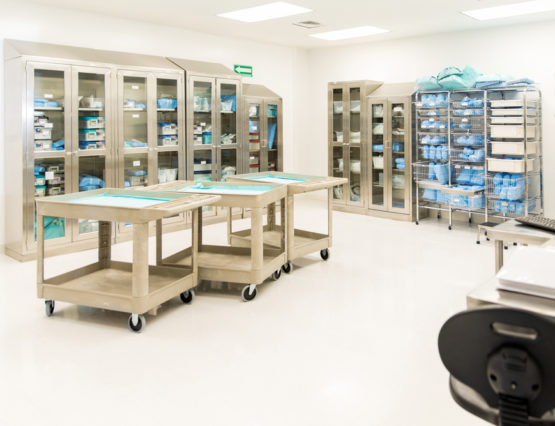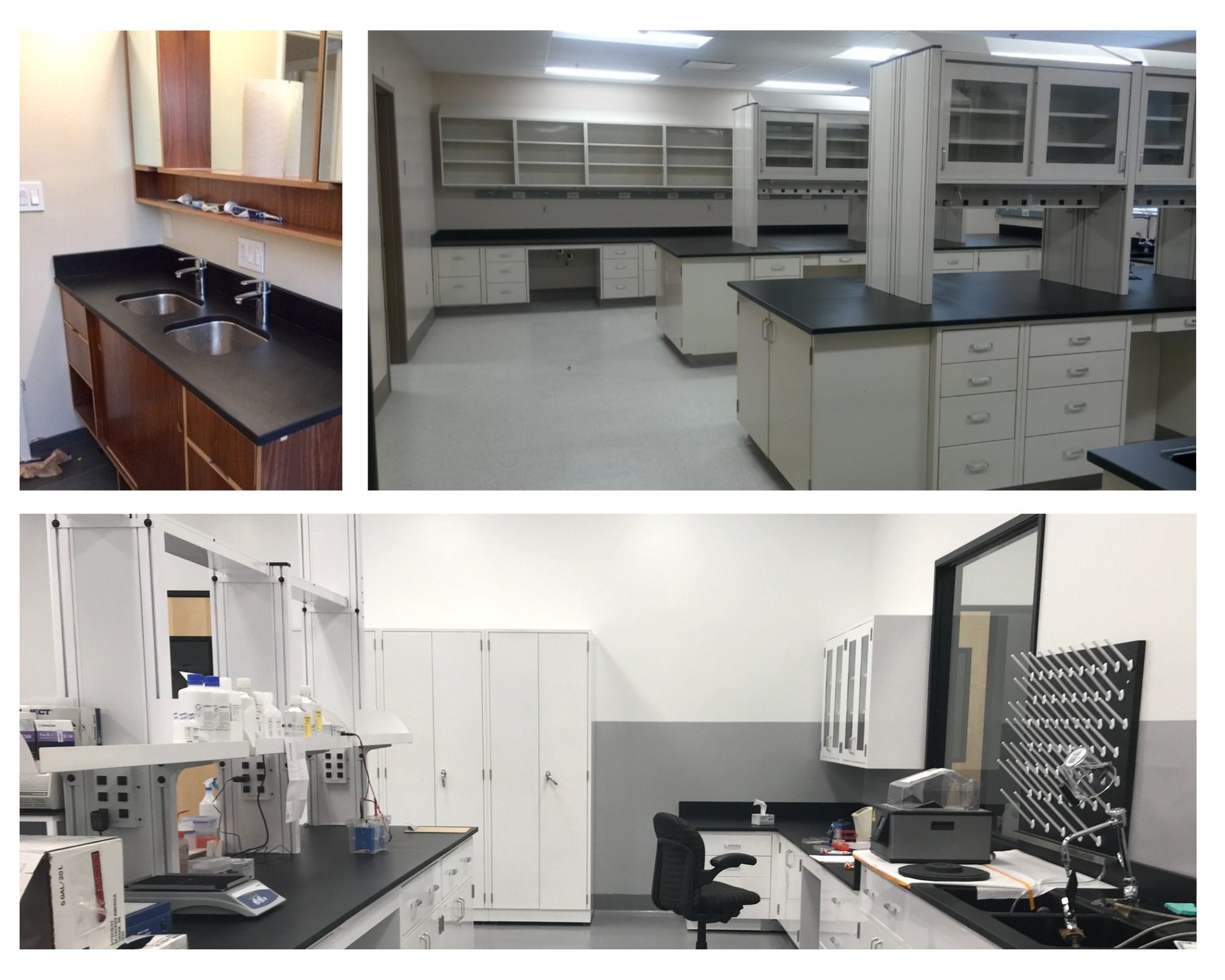When stocking your laboratory, it’s easy to forget about smaller lab implements and instead focus on major undertakings like the installation of workstations and sinks. However, laboratory equipment carts, glassware drying racks, and other small additions are equally important when it comes to creating an efficient working environment. While you plan out your laboratory construction or redesign, it is vital to ensure that you choose the right cart for laboratory use. Two of the most common carts are the stainless steel lab cart and the plastic cart.
Pros of Stainless Steel Laboratory Carts
Stainless steel laboratory carts have several advantages. One of these advantages is the fact that stainless steel lab carts tend to be less susceptible to heat damage. These carts, which also are called laboratory trolleys, are designed to transport lab instruments and supplies across the lab. Because instruments used in the lab are often precision-calibrated and extremely expensive, it is vital that you or your lab planner makes sure that your laboratory equipment carts are durable.
This is why stainless steel carts are often a great choice. Steel is often a more durable and longer-lasting material than plastic. For this reason, if you want a cart for laboratory use that stands up to heavy instruments and potential high-temperature exposure, steel is an excellent choice.
Pros of Plastic Lab Carts
Unlike stainless steel lab carts, the plastic laboratory cart is, on average, more affordable. And while “plastic” may conjure up images of a child’s toy cart, the plastic used to make these carts is typically ABS plastic. This plastic type is designed to be resistant to temperature, impact, an general stress. Essentially, while some lab designers may prefer the sleeker aesthetic of stainless steel, the plastic laboratory cart is still an extremely effective, durable, and safe option.
Perhaps the greatest advantage of the plastic cart is its price. It is often challenging to find inexpensive lab equipment, and the durable ABS plastic of these carts offers a dependable surface without the high initial cost of stainless steel.
Cons of Stainless Steel Laboratory Carts
Just as the primary benefit of plastic carts is their affordability, the primary drawback of steel carts is price. Steel carts may be easier to match to your lab’s working surfaces, but if your lab has a tight budget, it is likely better to spend money elsewhere. Plastic carts may be less aesthetically appealing, but they are certainly more economical.
Cons of Plastic Lab Carts
We have mentioned that plastic lab carts are often affordable, but one drawback is that the term “plastic” covers a range of materials. While most well-made plastic carts are made of durable ABS plastic, it is important to check and see that the cart you’ve chosen is durably made. In particular, be sure to check the construction on a lab cart that is especially inexpensive. Most reputable manufacturers will list the plastic type on the product information page. If you are interested in a plastic cart but no information is given, it may be worthwhile to investigate a bit more before committing to purchase.
Planning out a laboratory setup is often exhausting, and it may be tempting to skip over small details like equipment carts. However, even the smallest components of a lab are vitally important to its functioning. When you take the time to choose the right number and type of carts for your lab, you will be investing in the success of your research environment and future projects. If you have any questions on lab carts and other furnishings, don’t hesitate to contact us at Lab Tech!
CLICK HERE AND GET A FREE QUOTE >
Frequently Asked Questions
What are the advantages of stainless steel laboratory carts?
Stainless steel laboratory carts offer several benefits. One advantage is their durability and resistance to heat damage, making them ideal for transporting precision-calibrated instruments and withstanding potential high-temperature exposure. Additionally, stainless steel carts can complement other lab furnishings like phenolic resin countertops, creating a cohesive and functional laboratory environment.
Why should I consider plastic lab carts?
Plastic lab carts, typically made of durable ABS plastic, offer affordability without compromising durability and safety. These carts are resistant to temperature, impact, and general stress, making them suitable for various laboratory environments. They can be a practical choice for labs with budget constraints, allowing you to allocate funds to other essential lab equipment, such as pegboard drying racks.
What is the primary drawback of stainless steel laboratory carts?
The main drawback of stainless steel carts is their higher price compared to plastic carts. While stainless steel carts may offer better visual coordination with your lab’s working surfaces, they may not be the most cost-effective option for labs with tight budgets. If budget constraints are a concern, considering plastic lab carts can be a more economical choice without compromising durability or functionality.
Are there any concerns with plastic lab carts?
While plastic lab carts are often affordable and durable, it’s important to ensure you choose a well-made cart. The term “plastic” encompasses a range of materials, and it’s recommended to check the specific type of plastic used, especially for lower-priced options. Reputable manufacturers will provide information about the plastic type on the product information page. If such information is missing, it’s advisable to conduct further research before making a purchase decision.
How important are equipment carts in laboratory setups?
Equipment carts, although small in comparison to workstations and sinks, play a crucial role in creating an efficient and organized laboratory environment. These carts, whether stainless steel or plastic, are essential for transporting lab instruments and supplies throughout the lab. Investing in the right number and type of carts ensures the success of your research projects. By carefully considering your lab’s needs and budget, you can choose carts that align with other lab furnishings, such as epoxy resin or stainless steel sink, and contribute to a well-equipped and functional laboratory.


